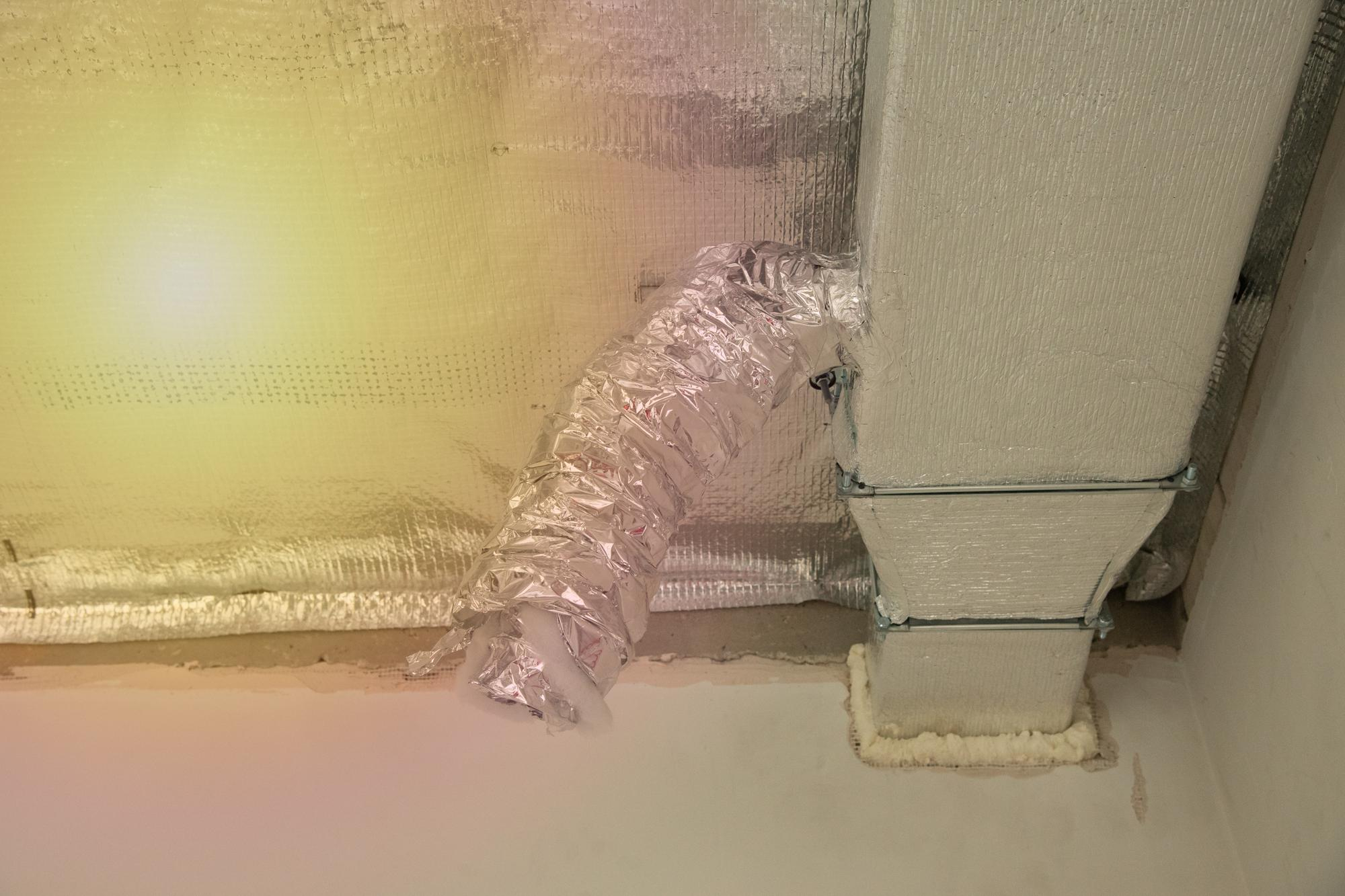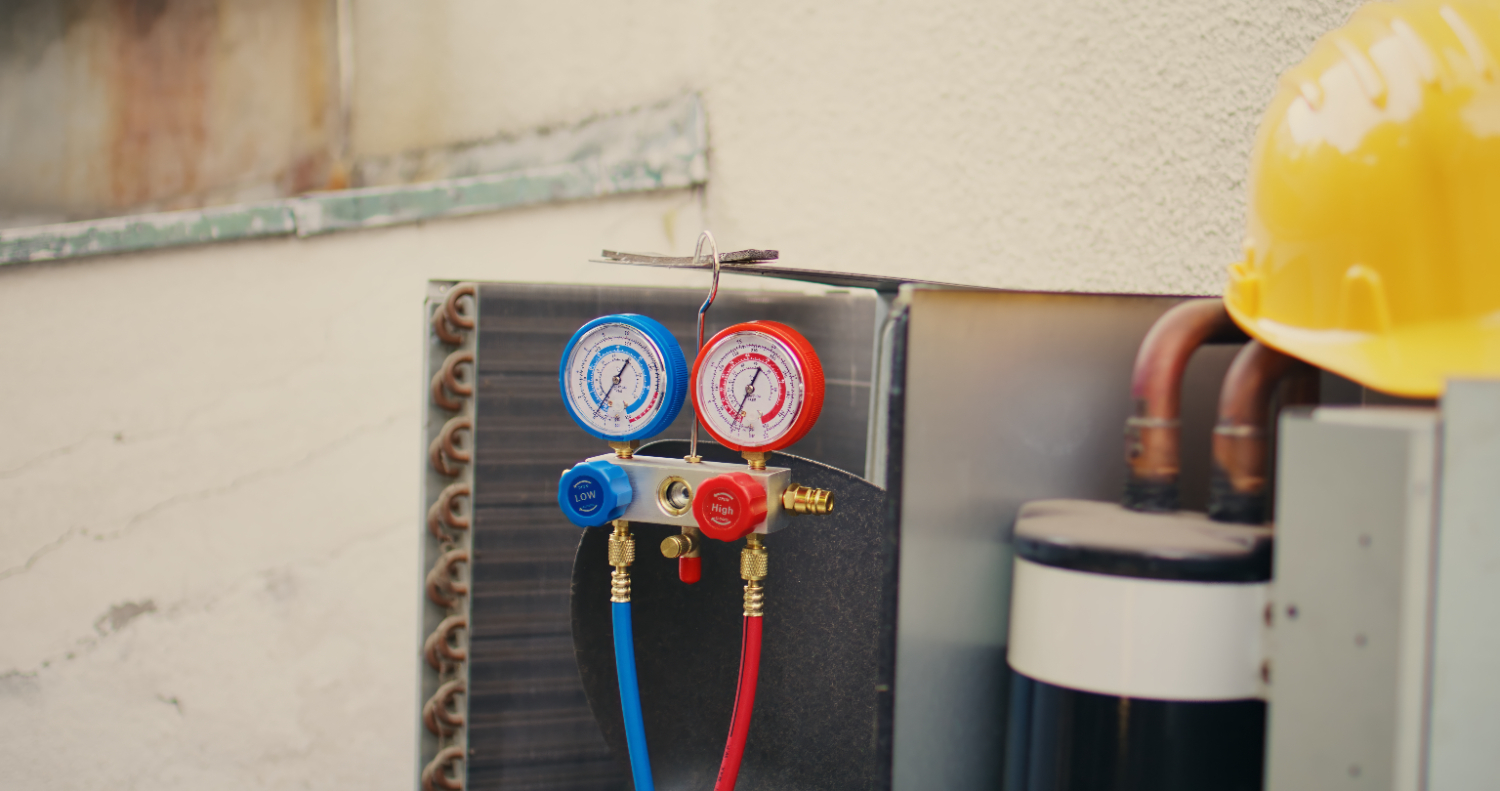Geothermal heating is an innovative and sustainable way to heat your home. It uses the earth’s natural heat to maintain comfortable indoor temperatures. This method leverages the stable temperatures found below the earth’s surface, making it an energy-efficient and eco-friendly option.
How Geothermal Heating Works
Geothermal heating works by harnessing the earth’s stable underground temperatures. The system includes a heat pump and a series of pipes, known as a ground loop, which are buried several feet below the surface. These pipes are filled with a heat-transfer fluid, usually water or a water-antifreeze mixture.
- Heat Absorption: In winter, the fluid in the ground loop absorbs heat from the earth. This heat is then transferred to the geothermal heat pump located inside the home.
- Heat Exchange: The heat pump increases the temperature of the absorbed heat before distributing it through the home’s ductwork. This process is highly efficient because it uses the earth’s constant temperature, which is warmer than the outside air during cold months.
- Heat Release: In summer, the process reverses. The heat pump extracts heat from the home and transfers it into the ground, where the earth absorbs it. This cools the fluid in the ground loop and returns it to the house to absorb more indoor heat.
Environmental Benefits of Geothermal Heating
Geothermal heating offers several significant environmental benefits. First, it reduces greenhouse gas emissions. Traditional heating systems often rely on burning fossil fuels, releasing carbon dioxide and other harmful gases into the atmosphere. Geothermal systems, on the other hand, use renewable energy from the earth, resulting in cleaner air and a healthier environment.
Second, geothermal heating conserves natural resources. By utilizing the consistent temperatures beneath the earth’s surface, geothermal systems reduce the need for natural gas, oil, or coal. This helps preserve finite resources and lessens the environmental impact associated with extracting and processing these materials.
Additionally, geothermal heating systems produce minimal waste. Conventional heating systems generate waste in the form of emissions and sometimes even ash or soot. Geothermal systems do not produce these byproducts, making them a cleaner alternative.
Finally, geothermal heating promotes energy independence. By reducing the need for imported fuels, homeowners can rely more on local and renewable energy sources. This enhances energy security and reduces the environmental risks associated with transporting fossil fuels over long distances.
Cost Savings and Efficiency
Geothermal heating systems offer impressive cost savings and efficiency. One of the main benefits is lower operational costs. Once installed, these systems use much less electricity compared to traditional heating methods, leading to reduced energy bills. The high efficiency of geothermal systems means that they produce more heat per unit of energy consumed, making them an economical choice for homeowners.
Maintenance costs are also lower for geothermal heating systems. These systems have fewer moving parts, reducing the risk of breakdowns and the need for frequent repairs. This reliability translates into fewer service calls and less money spent on maintenance over time. The underground components of geothermal systems are protected from weather conditions, contributing to their longevity.
Additionally, geothermal heating systems qualify for various incentives and rebates. Many states and local governments offer financial incentives to encourage the use of renewable energy. These can help offset the initial installation costs, making geothermal heating more accessible for homeowners.
Long-Term Benefits for Homeowners
Investing in geothermal heating offers numerous long-term benefits for homeowners. One of the most significant advantages is the system’s longevity. Geothermal systems can last decades with proper care, far outlasting conventional heating systems. This durability means homeowners can enjoy consistent heating without the frequent replacements associated with other systems.
Geothermal heating also increases property value. Homes equipped with this advanced and eco-friendly technology are attractive to potential buyers. The promise of lower energy costs and sustainable living adds to the home’s appeal, making it a sound investment for the future.
Comfort is another long-term benefit. Geothermal heating provides consistent, even temperatures throughout the home. It eliminates hot and cold spots, creating a more comfortable living environment. Additionally, these systems operate quietly, enhancing the overall comfort of the household.
Lastly, choosing geothermal heating demonstrates a commitment to sustainability. Homeowners who invest in renewable energy contribute to reducing carbon emissions and conserving natural resources. This positive environmental impact aligns with the growing interest in green living and sustainability.
Conclusion
Geothermal heating provides numerous benefits for homeowners, from cost savings and efficiency to long-term comfort and environmental sustainability. This innovative heating solution harnesses the earth’s natural energy, offering a reliable and eco-friendly alternative to traditional heating methods.
Choosing geothermal heating means investing in a system that reduces operational and maintenance costs, extends the life of heating equipment, and enhances property value. It also commits to a greener future by lowering greenhouse gas emissions and conserving natural resources.
At Daffan Cooling & Heating, we offer professional geothermal heating in Weatherford, TX. Our experts are dedicated to helping you achieve a more comfortable and sustainable home. Contact us today to learn how geothermal heating can transform your living space!









